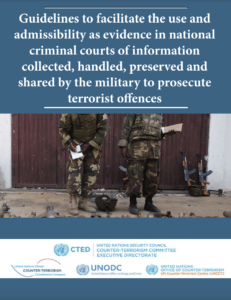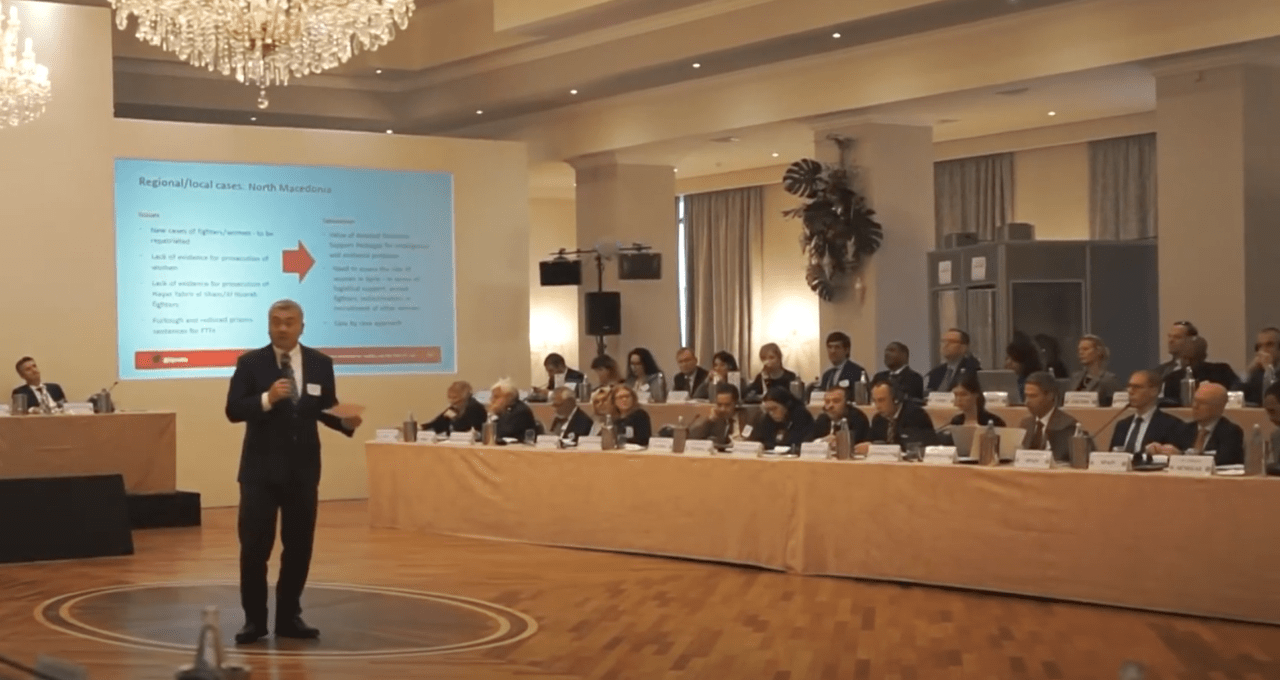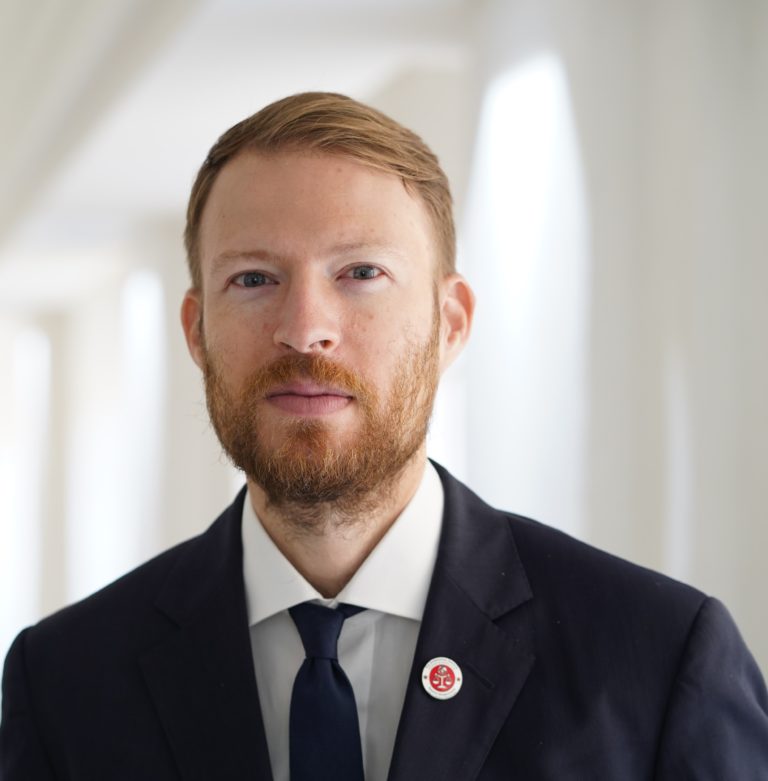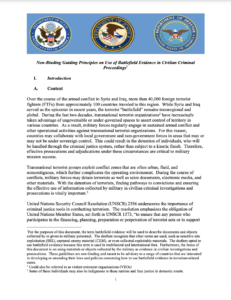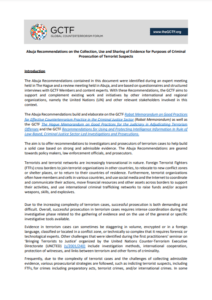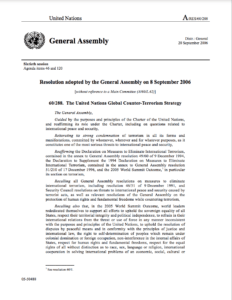Battlefield Evidence Workstream
The collection, analysis, sharing and use of battlefield evidence — materials and information gathered by military forces — can be complex and challenging, yet this material can be effective in holding those who commit terrorist actions or support terrorist organisations accountable through civilian criminal investigation and prosecution.
Since 2019, the IIJ has led efforts to promote the implementation of the Non-Binding Guiding Principles on Use of Battlefield Evidence in Civilian Criminal Proceedings developed by the U.S. Departments of State, Justice and Defense in response to concerns from partner countries regarding the collection, sharing, analysis and introduction of such evidence in terrorism cases. The Guiding Principles were presented at the IIJ Battlefield Evidence Global Workshop in 2019. The IIJ has also integrated into its curriculum on this important workstream the UN’s guidelines on military evidence. Explore our Practitioner Tools & Publications at the end of this page.
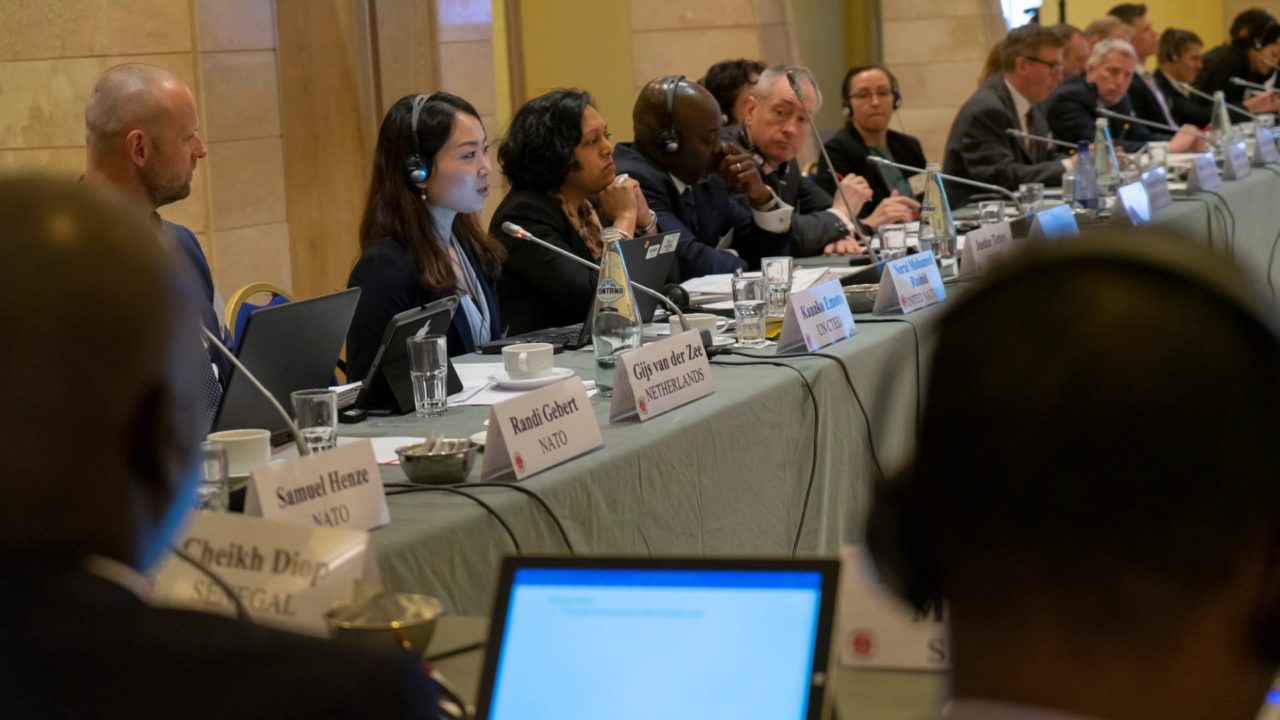
With support from the

In December 2019, the IIJ, in partnership with the U.S. Department of State’s Bureau for Counterterrorism, convened a Battlefield Evidence Senior Leaders Seminar (SLS) in Malta. The Seminar focused on how material collected or received by military personnel can be used more effectively to interdict, investigate, arrest, try and prosecute terrorists in civilian criminal justice proceedings. This high-level Seminar gathered more than 100 senior military and law enforcement officials, counter-terrorism policymakers, and representatives from key multilateral institutions. Collectively, the participants represented 35 countries and 11 organisations, among them the United Nations Office of Counter-Terrorism (UNOCT), United Nations Counter-Terrorism Committee Executive Directorate (UN CTED), United Nations Office on Drugs and Crime (UNODC), NATO, INTERPOL, European Union, Council of Europe, Eurojust, and the Commission for International Justice and Accountability (CIJA).
Watch the video to hear from Senior Leaders
In Action
IIJ Battlefield Evidence Workstream: Meeting on Battlefield Evidence from Afghanistan and Beyond
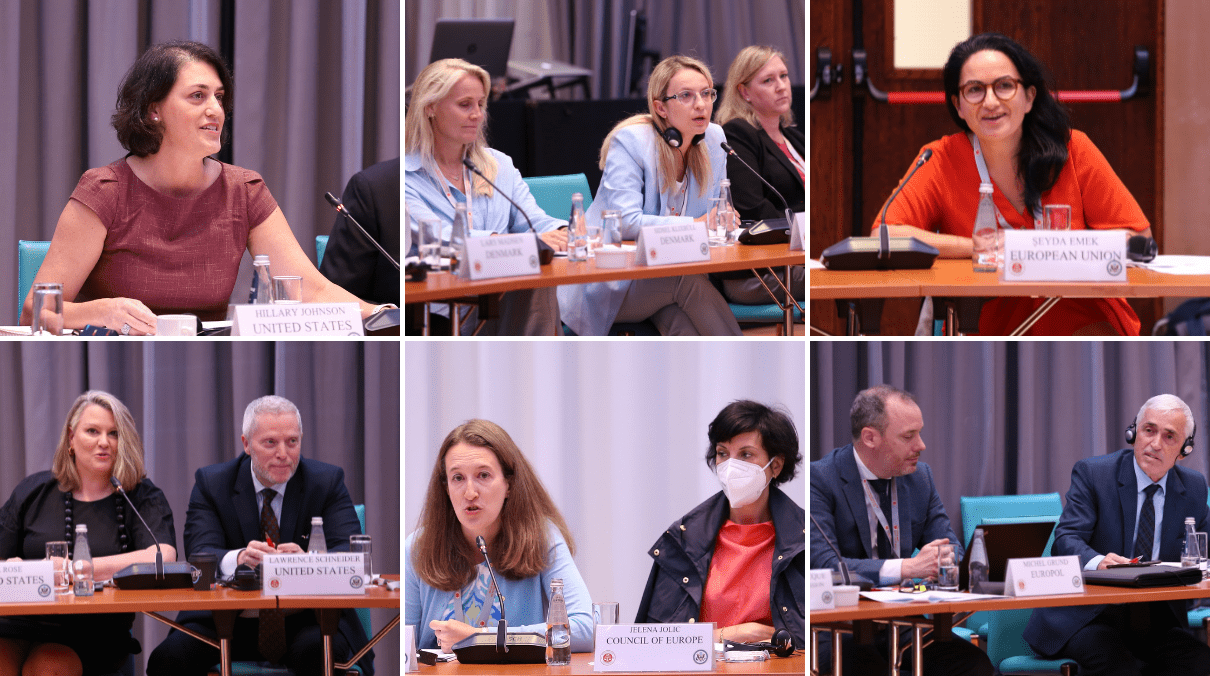
Battlefield Evidence and Criminal Justice Approaches to Counter-Terrorism: Online UNGA76 Side Event
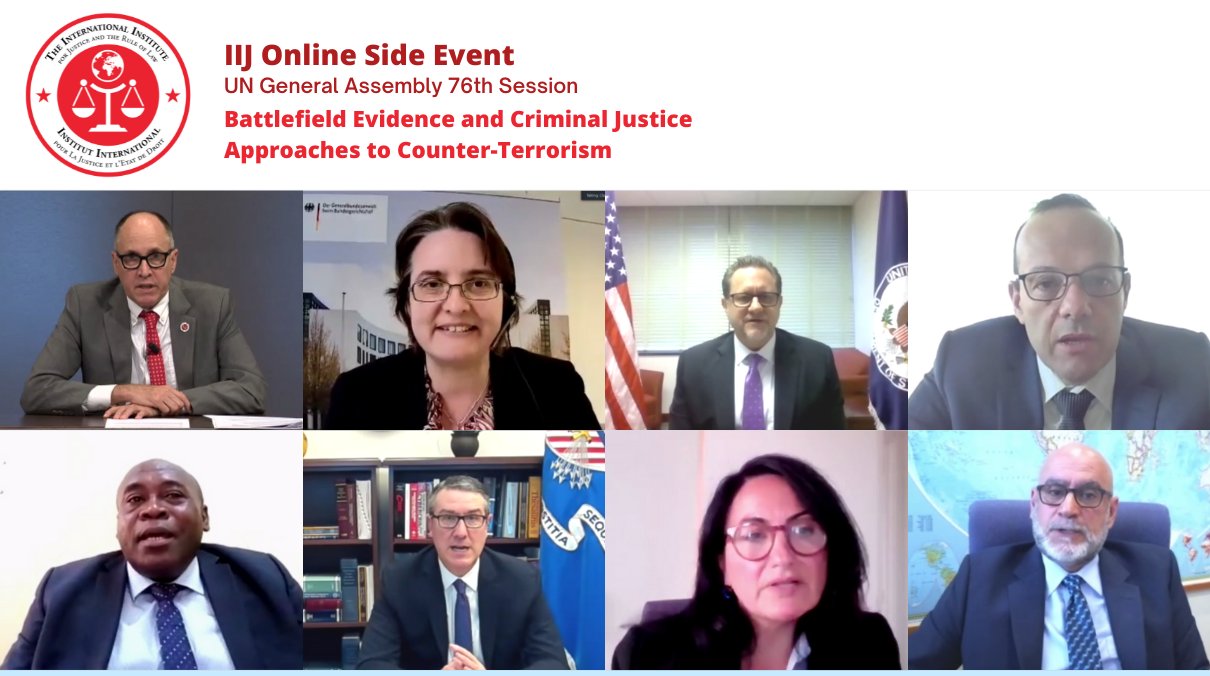
IIJ Battlefield Evidence Workstream: West Africa Workshop

IIJ Battlefield Evidence Workstream: Senior Leaders Seminar
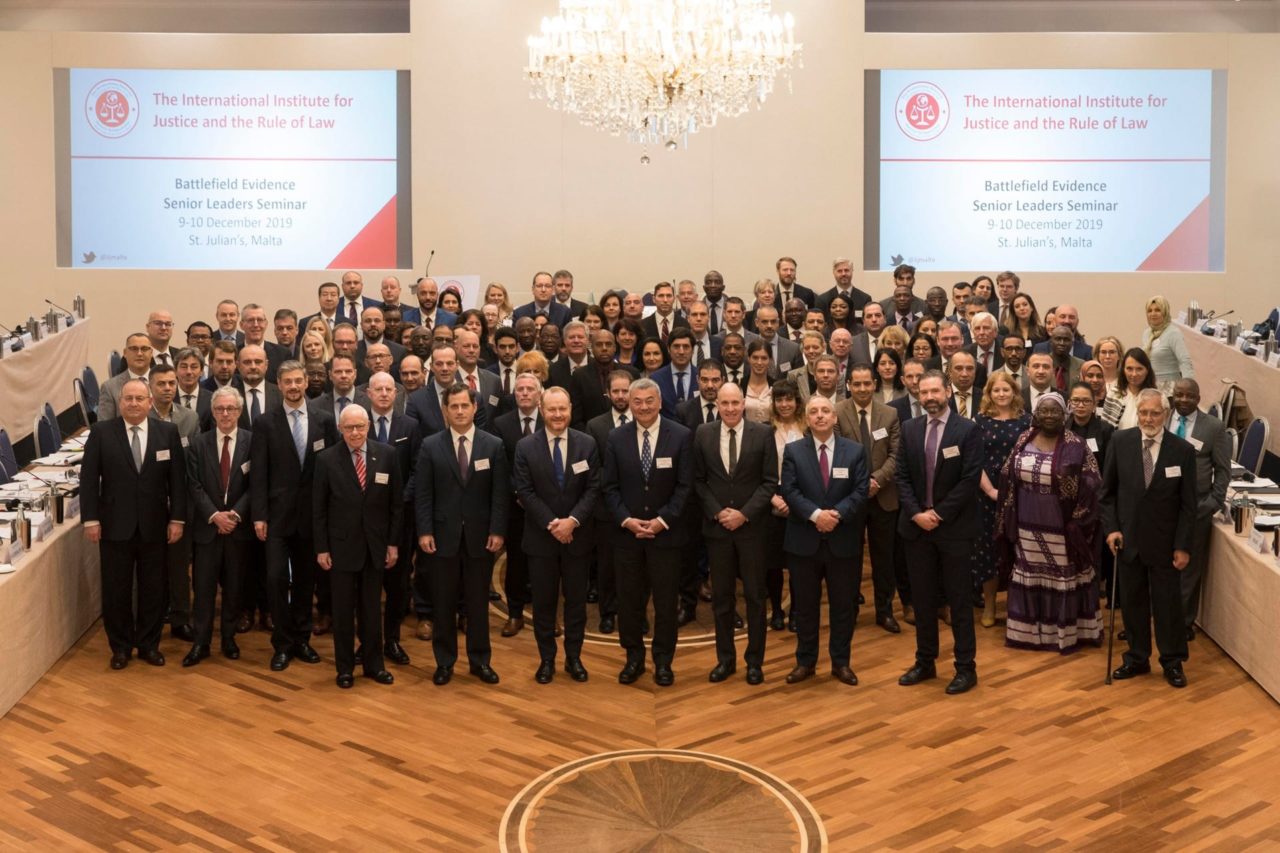
Practitioner Tools & Resources
